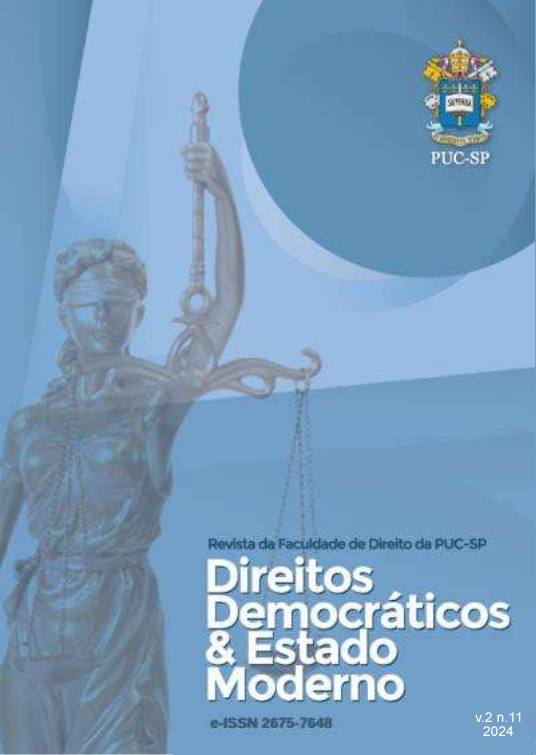The search for a legal policy for the protection and effectiveness of the existential minimum for the social objects of the 1988 Constitution
DOI:
https://doi.org/10.23925/ddem.v.2.n.11.65471Keywords:
Constitution, Existential Minimum, EffectivenessAbstract
The purpose of this article is to study the effectiveness of the existential minimum, which aims to guarantee individuals a minimally dignified standard of living, protecting the goods necessary for their human and social development, containing legal provisions that can be activated by civil society in the face of State, aiming that its actions on the public budget give effect to these public policies. The research methodology used will be bibliographic, with data collection and case law studies. And it concludes that the minimum existence is a good to be protected with priority, by society and the State.
References
BARCELLOS, Ana Paula de. A eficácia jurídica dos princípios constitucionais: o princípio da dignidade da pessoa humana. 1 ª edição, Rio de Janeiro: Renovar, 2002.
BRASIL. Constituição da República Federativa do Brasil de 5 de outubro de 1988. Brasília – DF, Editora do Senado Federal, 2019.
BRASIL. Decreto n.º 591, de 6 de julho do ano de 1992. - Pacto Internacional sobre Direitos Econômicos Sociais e Culturais. Disponível em: http://www.planalto.gov.br/ccivil_03/decreto/1990-1994/d0591.htm. Acesso em 09/06/2024.
BOBBIO, Norberto. O Positivismo Jurídico: Lições de filosofia do Direito. São Paulo: Ícone, 1995.
CURY, Carlos Roberto Jamil. A Constituição de Weimar: um capítulo para a educação. Revista Quadrimestral de Ciência da Educação, Campinas - SP, n. 63, 1998.
FRANÇA. Constituição da República Francesa de 25 de fevereiro de 1848. Disponível em: <https://pt.scribd.com/document/273148301/A-Constituicao-Francesa-de-1848 >. Acesso em 09/06/2024.
LEÃO JUNIOR, Teófilo Marcelo de Arêa, Direito à Moradia, 1ª Edição, Curitiba, Editora Juruá, 2014.
MORAES, Alexandre, Direito Constitucional, 19ª edição, São Paulo, Editora Atlas, 2006.
NUNES JUNIOR, Vidal Serrano, A Cidadania Social na Constituição de 1988, 1ª edição, São Paulo, Editora Verbatim, 2009.
ONU. Declaração Universal dos Direitos Humanos. Disponível em: <https://www.un.org/es/about-us/universal-declaration-of-human-rights>. Acesso em 09/06/2024.
TORRES, Ricardo Lobo. O Direito ao Mínimo Existencial. 2 ª edição, Rio de Janeiro, Editora Renovar, 2009.
Downloads
Published
How to Cite
Issue
Section
License
Copyright (c) 2024 Democratic Rights & Modern State

This work is licensed under a Creative Commons Attribution 4.0 International License.
This work is licensed under a License Creative Commons Atribuição 4.0 Internacional.
The authors grant the journal all copyrights relating to the published works. The concepts issued in signed articles are the absolute and exclusive responsibility of their authors.
DD&EM Magazine - ISSN 2675-7648

















